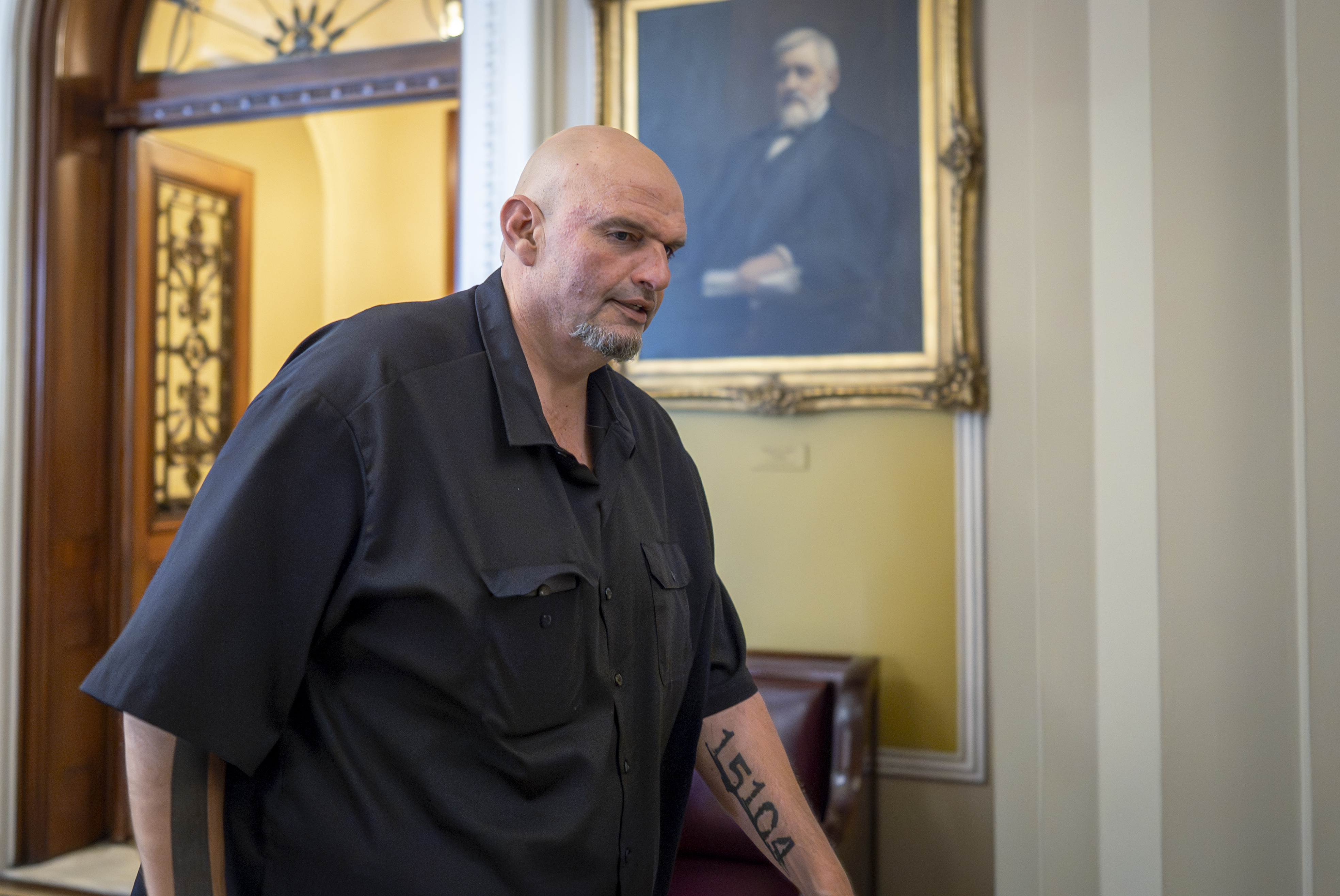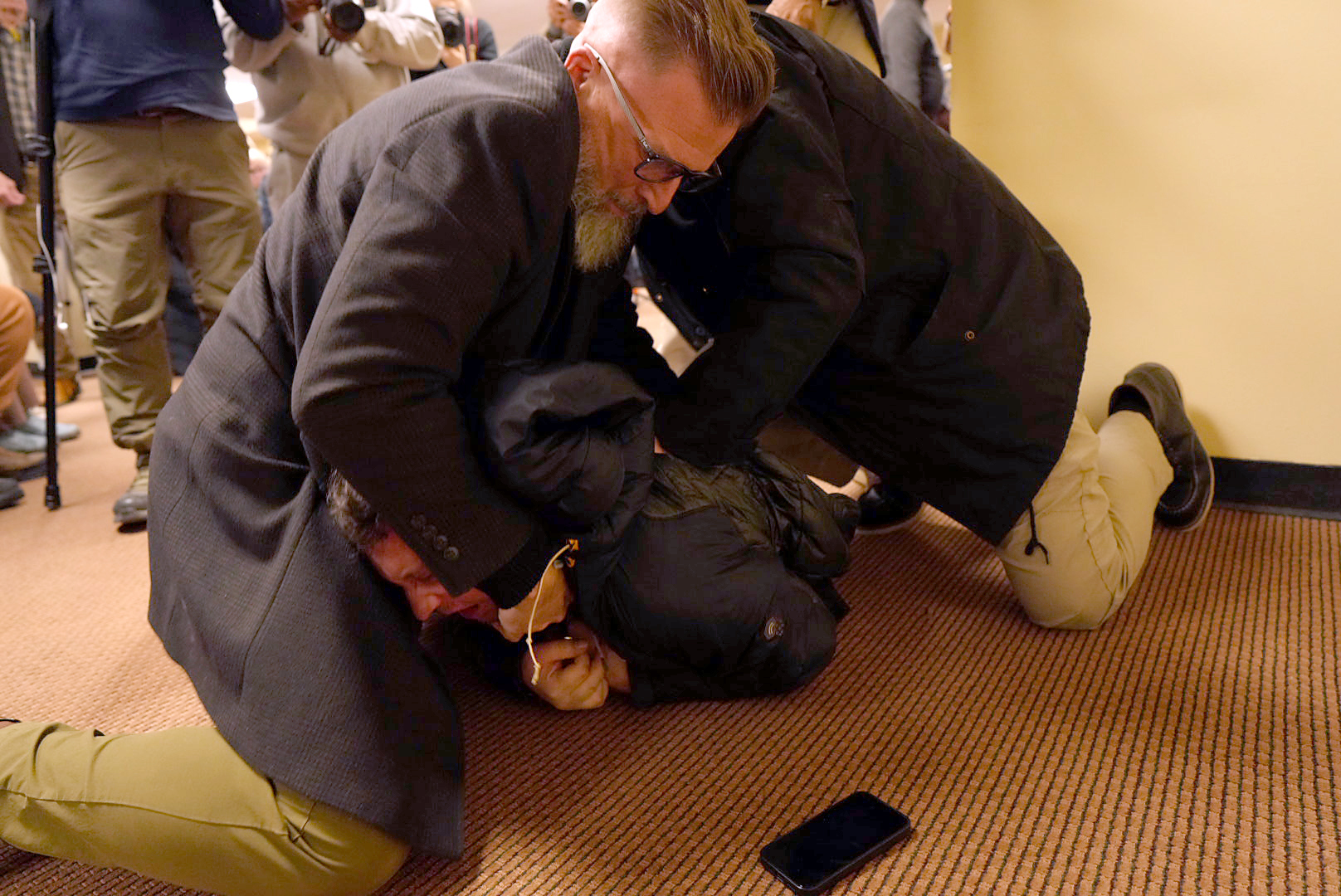Former Democratic U.S. Rep. Charles Rangel of New York, an outspoken, gravel-voiced Harlem Democrat who spent nearly five decades on Capitol Hill and was a founding member of the Congressional Black Caucus, died Monday at age 94.
His family confirmed the death in a statement provided by City College of New York spokesperson Michelle Stent. He died at a hospital in New York, Stent said.
Rangel was one of the Gang of Four — African American political figures who wielded great power in New York City and state politics, along with David Dinkins, New York City’s first black mayor; Percy Sutton, who was Manhattan Borough president, and Basil Paterson, a deputy mayor and New York secretary of state.
A veteran of the Korean War, Rangel defeated legendary Harlem politician Adam Clayton Powell in 1970 to start his Congressional career. During the next 40-plus years, he became a legend himself — a founding member of the Congressional Black Caucus, dean of the New York Congressional delegation, and in 2007, the first African American to chair the powerful Ways and Means Committee.
He stepped down from that committee amid an ethics cloud, and the House later censured him. But he was reelected and went on to serve in Congress until 2017.
Few could forget Rangel after hearing him talk. His distinctive gravel-toned voice and wry sense of humor were a memorable mix.
That voice — one of the most liberal in the House — was loudest in opposition to the Iraq War, which he branded a “death tax” on poor people and minorities. In 2004, he tried to end the war by offering a bill to restart the military service draft. Republicans called his bluff and brought the bill to a vote, and even Rangel voted against it.
A year later, Rangel’s fight over the war became bitterly personal with then-Vice President Dick Cheney.
Rangel said Cheney, who has a history of heart trouble, might be too sick to perform his job.
“I would like to believe he’s sick rather than just mean and evil,” Rangel said. After several such verbal jabs, Cheney hit back, saying Rangel was “losing it.”
The charismatic Harlem lawmaker rarely backed down from a fight since he first entered the House in 1971 as a dragon slayer of sorts, having unseated Powell in the Democratic congressional primary in 1970. The flamboyant elder Powell, a city political icon first elected to the House in 1944, was ill and haunted by scandal at the time.
Rangel became leader of the main tax-writing committee of the House, which has jurisdiction over programs including Social Security and Medicare, after the 2006 midterm elections when Democrats ended 12 years of Republican control of the chamber. But in 2010, a House ethics committee conducted a hearing on 13 counts of alleged financial and fundraising misconduct over issues surrounding financial disclosures and use of Congressional resources.
He was convicted of 11 ethics violations. The House found he had failed to pay taxes on a vacation villa, filed misleading financial disclosure forms and improperly solicited donations for a college center from corporations with business before his committee.
The House followed the ethics committee’s recommendation that he be censured, the most serious punishment short of expulsion.
RELATED STORY | Former Utah Rep. Mia Love, the first Black Republican woman elected to the US House, has died
Rangel looked after his constituents, sponsoring empowerment zones with tax credits for businesses moving into economically depressed areas and developers of low-income housing.
“I have always been committed to fighting for the little guy,” Rangel said in 2012 when he announced he was running for reelection.
He came back from the Korean War having earned a Purple Heart and a Bronze Star — and a sense of perspective. He would always say that he measured his days, even the troubled ones around the ethics scandal, against the time in 1950 when he survived being wounded as other soldiers didn’t make it.
It became the title of his autobiography: “And I Haven’t Had A Bad Day Since.”
A high school dropout, he went to college on the G.I. Bill, getting degrees from New York University and St. John’s University Law School.









